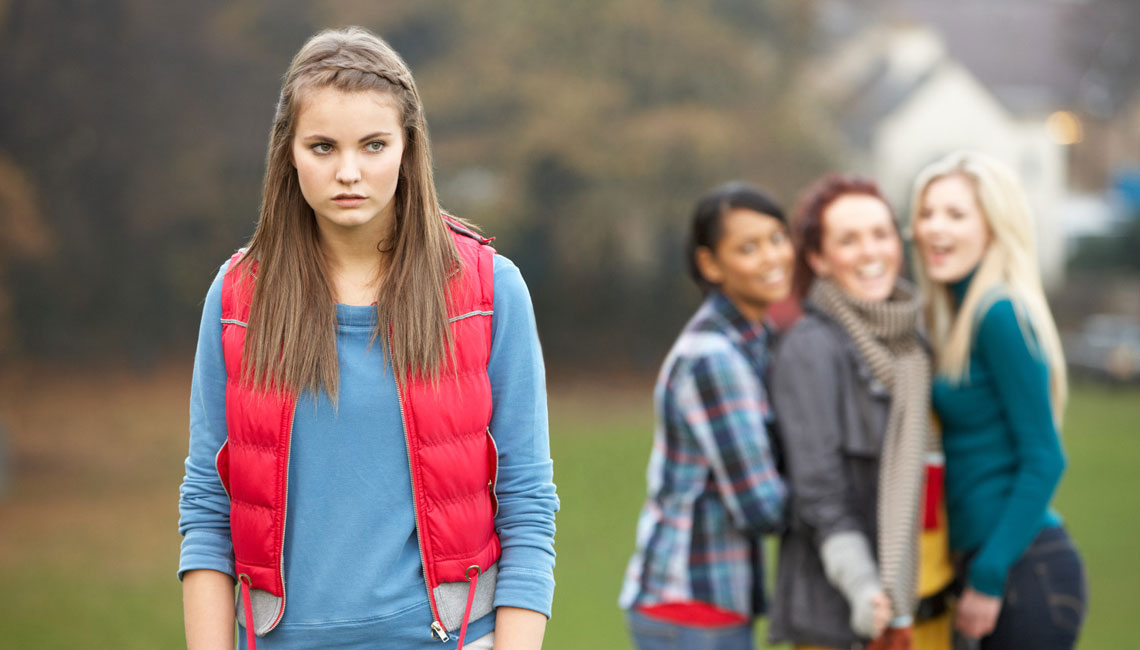Today we hear the word “bullying” a lot. Kids will say that someone is “bullying them,” but what does bullying really mean? What does it really look like when a child is being bullied?
Let’s start with what bullying is not. Bullying is not a confrontation or conflict between two peers. It isn’t a verbal disagreement, friends naturally growing apart, a kid not getting his or her way, or a child being mean to another child just once. All of these things can feel bad, but they are not bullying.
So what is bullying?
As a therapist who specializes in helping kids and young adults heal from bullying, I get a lot of calls from people who are asking this very same question. Is this really bullying? To figure this out, we explore whether the “bully” has power over the “victim,” whether it is a repetitive pattern where one person is repeatedly being taunted, called names, harassed, physically or verbally bullied. By definition, the word bullying means a repeated pattern of behavior where someone has power over someone else.
As a parent, you can start to assess if bullying is happening to your child by asking open-ended questions. Spend time talking with your child to get a better idea of their current patterns of behavior. Are there any changes that may seem extreme in their life or work, socially and personally?
So what should you assess? Here are some good questions to ask:
- Has my child’s social life changed? If your child was quite social before and you’re seeing a decline in their activities on a consistent basis, then this may be a time to probe further to learn what may be going on in their life. Who is your child hanging out with? What activities is he or she involved in? Has that changed? Any changes in who your child is hanging out with and what activities he or she is engaged in can (and should) be explored.
- Is my child spending more time isolated in his or her bedroom? If your child has started hiding out in his or her room more often, you want to explore why that’s happening. Children who have been bullied often isolate themselves due to the negative feelings that come up from bullying as well as to avoid the negative interactions with their peers.
- Has my child’s appearance significantly changed? There are many different reasons that youth change their appearance. That’s why it is especially important to ask open-ended, supportive questions to find out the reasons for their choices. It could be a new fashion choice, but it could also signify that bullying is happening. Further, if your child’s appearance has declined due to poor hygiene or low motivation, that is another sign that your child is having a hard time.
- Is my child in a bad mood more often? When your child’s mood changes, it is important to find out why. Are they more irritable or sad? Are they seeming more depressed and less talkative? Do they seem to have less energy and motivation? Have they started saying negative things about themselves? Paying close attention to your child’s mood can help you identify depression before it gets to a critical stage. Don’t wait to ask until your child is posting about hurting him or herself on social media.
- What is happening on my child’s social media accounts? It is very important to check your child’s social media (and email) accounts regularly. Youth now spend much of their time interacting electronically, so it’s important to monitor what’s happening there. More and more, bullying happens online. Also, youth will reach out for help through these mediums, so parents need to be there, paying attention.
It is so essential to explore these questions with your child. Bullying, has a huge impact on one’s self esteem and can lead to severe depression or suicide if it is not addressed soon enough. In 2001, the World Health Organization did a comprehensive study on bullying and found that in 12 years of school there is a 70% chance that a child will be a bully, a victim of bullying, or both. That means 70% is a clear epidemic.
It is so important for people to not feel alone with bullying. It’s nothing to be ashamed of. With support and some specific skills, children can help to stop the bullying with peers. This can save someone’s self- esteem or even their life.
Do you think your child has been bullied? Please feel free to contact Danielle Matthew at the Empowerment Space for help: (818) 267-4282. You can also learn more about the Empowerment Space program at www.empowerment.space.
You can also find helpful resources here: www.stopbullying.gov.



![Danielle-TN-NM-LOGO[27]](https://empowerment.space/wp-content/uploads/2022/05/Danielle-TN-NM-LOGO27-150x150.png)
